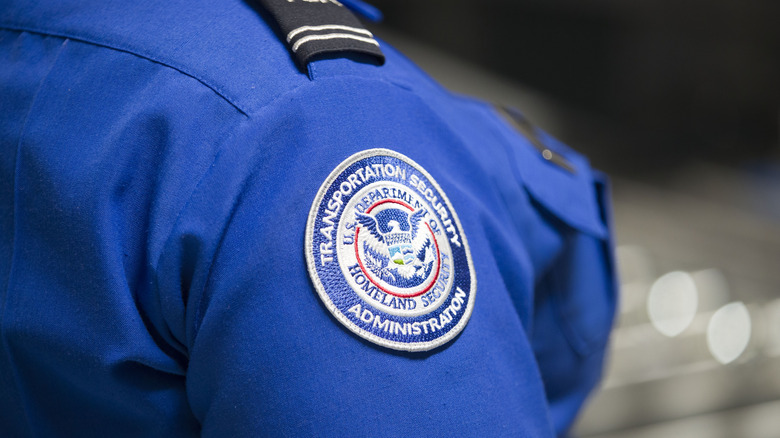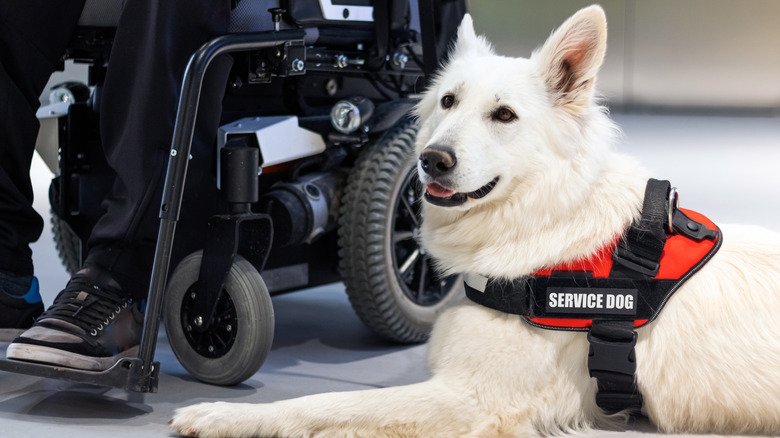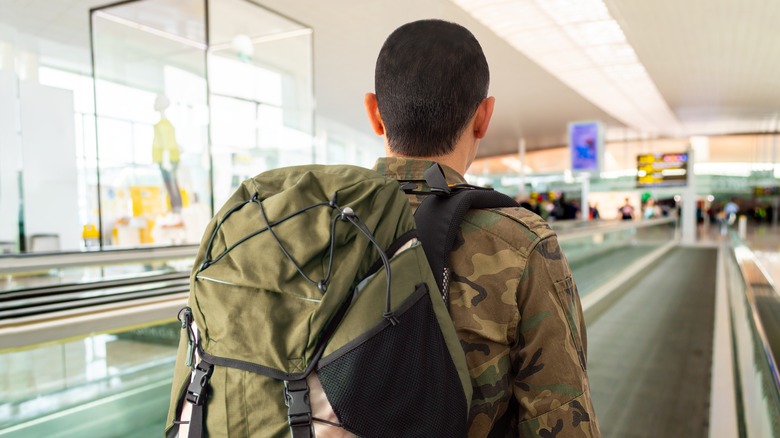The Little-Known TSA Program That Offers Helpful Security Screening Assistance
Air travel is a wonderful way to explore the world and expand your point of view, but it does come with some challenges. Even if you've found a great fare and followed this tip to make sure you've packed everything you need for your vacation, the process of making your way through airport security can be intimidating. Staying informed about packing restrictions and keeping track of all of your travel documents can be overwhelming. This experience may be especially daunting for anyone who needs extra time or special assistance. A person who is traveling with a medical condition or a disability, for example, might feel intimidated by the pressure to move rapidly through this checkpoint. The good news is that TSA offers a program to help individuals in these circumstances. A program called TSA Cares is designed to support any traveler who needs extra assistance with the security screening process.
TSA Cares can provide a resource called a Passenger Support Specialist (PSS) to assist travelers who need personalized support as they make their way through security. A PSS is a TSA agent who has been trained to work as an advocate for travelers who need extra assistance during the security checkpoint. As these travelers' needs are addressed and supported by the PSS, the experience becomes a respite from the intensity of the security process. By providing a sense of calm and thoughtful reassurance at the airport, a PSS can create a positive experience and make each trip more successful.
How a Passenger Support Specialist can help
There are a number of situations where a TSA PSS could provide assistance to a traveler. For example, a medical condition that limits mobility could make it difficult for individuals to walk, stand, or raise their arms in the air. These limitations might make a traditional security screening impossible. Internal or external medical devices could also present a challenge during the screening process, as well as traveling with a service animal. Someone who cannot understand instructions, either due to a language barrier or a disability, would benefit from the aid of a PSS. This program could also be supportive to a person who is transporting items that require special care, such as a cultural or religious item that is sacred or fragile, or even cremated ashes.
It's important to note that while the assistance of a PSS will help you move efficiently through the security process, its purpose is not to skip it entirely. Travelers who work with a PSS will still pass through the screening checkpoint, but it will be done at a slower pace that matches their needs. Enlisting the help of a PSS is not part of the TSA Precheck process, nor is it the same as requesting the use of a wheelchair while in the airport. However, if you know in advance that a traveler will be using a wheelchair at the security checkpoint, then a PSS can support them during the screening.
How to contact TSA Cares
One particular way that the TSA Cares program provides a benefit to the community is by supporting wounded service members and veterans. If a member of the military has suffered an injury that requires the use of a medical device or a service animal, for example, the assistance of a PSS can provide that person with a respectful and dignified experience while passing through the security checkpoint. A PSS can also be particularly helpful to anyone who has trouble processing the sounds and frantic nature of the security checkpoint. For example, the mother of a person with Down syndrome described how their PSS made her son comfortable and calm throughout the whole security process. This positive experience set the tone for an enjoyable flight and successful vacation. TSA Cares is making a difference by helping to unlock accessible travel for every explorer.
If you think you would benefit from the help of a PSS during your trip to the airport, contact TSA Cares at least 72 hours before your flight. You can fill out a form that will ask you to describe your particular need for assistance, which will help your agent prepare to become your advocate. You can also call TSA Cares at (855) 787-2227 to make these arrangements. While it's best to give 72 hours notice, passengers are still encouraged to ask to see if PSS assistance is available if the need arises after they've arrived at the airport.


